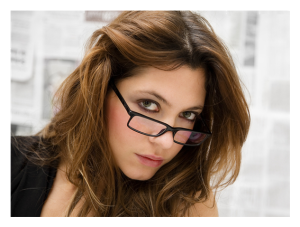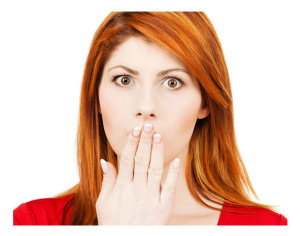Hooked on pop culture? On your preferred online resources?
But then again…
I’ve voiced my concern over the uneven quality of what we read on the Internet, or for that matter, what we hear in any media.
I’ve railed over (presumed) experts who are experts in nothing – or more precisely, in something other than the subject they’re addressing. I’ve also fessed up to my own guilty pleasure at gossipy Housewife franchises, even as I bemoan our dwindling desire for books, and acknowledge our attention deficit online.
But we certainly take more time when words engage us, when topics inspire us, when writing hums with humor or crackles with energy. Or sincerity.
Then we’re hooked, fully enjoying our online fare – a quick scan of our morning media sites, an indulgence lingering over a personal story of an intimate nature, then a dip into conversation on Facebook or checking in with Twitter.
We tumble, stumble, and rumble through our feeds and faves – and we like it.
Or rather, we Like it.
Trust
But what about when “real news” is so muddied with opinion that we can’t tell which is which? What about the fact that we’re bombarded with so many voices that we grow numb to what’s important, and begin to tune out?
Who do you listen to? Who do you trust?
And I’m thinking about us. You and me.
I’m thinking about what I say and what I don’t, hoping that musings and opinions are clearly distinguished from more journalistic pieces, as is writing in a more narrative (or literary) fashion in which I use my life experience, though I tweak and shape – as does any writer.
I hope you recognize what is written from a place of immediacy or even urgency: the latest lesson learned with one of my kids, a worry or event that is stuck in my craw, a message set adrift in a virtual bottle.
A day, like any other.
Public Face, Private Life
I want you to know enough about me (from reading me) to trust the voracity and integrity of my intent, as well as my content. But your role here is different from mine. You are consumers of words and ideas, of foolishness and fun; some of you are friends, others are acquaintances, and many of you are strangers.
I ask nothing of you but to read (and I’m thrilled that you do), and to join in the conversation if you choose.
But what about the creation of a public persona online? Or several? How far from the “true self” can someone wander, and still be credible? To what extent is it a matter of context?
I’m not talking about the need to protect loved ones by not revealing certain personal information on the Internet. I consider that essential – when going through a legal action, or discussing details that could injure family, friends, or threaten your job.
 I’m talking about critical omissions, misinformation, or allowing people to believe X when Y is closer to the truth. I’m talking about knowing that people rely on your word and look to you for experience. People who may not realize the extent to which we all use language to serve our purpose.
I’m talking about critical omissions, misinformation, or allowing people to believe X when Y is closer to the truth. I’m talking about knowing that people rely on your word and look to you for experience. People who may not realize the extent to which we all use language to serve our purpose.
Is this nothing more than understandable promotion in a dog-eat-dog world? Is it the verbal equivalent of Photoshopping to look younger or thinner? Does it matter in the grand scheme? Or rather, when does it matter?
Cultural Commentary, Hard News
Isn’t conflicting information, misinformation, or apparent authority (with nothing to back it up) a problem? What about those who beef up a bio with more than a little inventive spin?
Eventually, does the writer pay the piper?
Should he? Should she?
I’m curious to know if you believe that we get what we deserve as consumers – of goods and services, as well as political leaders. I wonder if audience appetite dictates demand and that’s that, if playing to the lowest common denominator is inevitable, if our desire to hear what we want to hear so outstrips our common sense that no source is a reliable source and we have no one to blame but ourselves.
And then what?
Does “news” or even “truth” become so biased or simply self-serving – bring on the page views and ad dollars! – that we don’t fully trust anyone we read?
So I’ll ask again, who do you trust?
Does the recent News Corp scandal shake your belief in what you read? Or do you roll your eyes at just one more abuse of power, and chalk it up to Money vs. Everything Else?
News in the News
This morning, I caught Jason Stanley’s Part 2 in a New York Times editorial on media mistrust – and note, the term “editorial” clearly informs us that it is opinion. Stanley’s follow-up to The Ways of Silencing, his dissection of the way news (or any information) can be manipulated, draws us into the topic of communication and how we receive it. Among other things, at what point does it become propaganda?
In “The Ways of Silencing,” the author makes the point that politics has long used strategies of “linguistic silencing” – mechanisms for stealing the voices of opposition, and commandeering language to transform it into propaganda. He also takes on the media, using the Fox Channel’s “fair and balanced” marketing spin as an example. He warns against
…the dangers of the manipulation of language.
And in his follow-up, he reflects on the comments received in response to his article, and that discussion is equally lively.
I recommend both articles, which suggest our widespread vulnerability as an (uninformed) audience. Doesn’t that mean we increasingly own the responsibility of vetting our media sources – and if not that, insist that they do by challenging them if they don’t?
All of this begs the question of who we trust, how much we trust, and the extent to which we rely on the integrity of individuals, organizations, and institutions – and reliance is the very definition of trust.
- What do you read daily? Print or online?
- How much do you believe what you read?
- How much do you rely on it?
- Do you know enough about me to trust me, and my integrity?
You May Also Enjoy


I started replying but I think you’ve spurred an entire post.
I think that’s terrific, Supermodel. Anxious to read your thoughts.
I do hope you checked out the Times articles, and also the first link – which references my position on so-called experts, authority, credibility, and the lack of vetting that takes place to ensure that people are who they say they are, or have the credentials / experience to be considered “expert.” I see this as a serious drawback among many (other drawbacks), part of our current internet delivery of information.
Another issue is the speed at which writers/journalists are expected to deliver news oropinion, and certainly – the lack of procedures in place to monitor quality and accuracy that results. (Something that existed in the print world.)
But ever notice how easy it is to vet someone with a few queries on Google or LinkedIn? Or, to identify that qualifications are severely lacking? It’s something that concerns me tremendously, and people don’t think to do it. To know something about whose words are guiding their decisions.
I read a ton every day, but very little of it could be considered “hard news.” I get most of my news from NPR (and some from Jon Stewart, and Stephen Colbert, if those can be considered news sources).
Where I find myself running into trouble is when I consult “experts” on parenting advice. I am often too easily swayed by a single opinion and forget that, in many cases, the advice of a reasonable friend is worth as much as those of so-called experts.
It’s interesting to consider – as you do here – the ways in which we’ve been raised to listen to authority, especially given the ways in which the Internet has democratized access to broadcasting.
As for you, my dear, I respect the choices you have made to keep certain elements of your identity private. I don’t believe that anonymity and trustworthiness are mutually exclusive. The consistency of your writing, your interests, your opinions, and the support you’ve given me tell me enough to know that I can trust your integrity.
I do not follow any news on a daily or even weekly basis except our own local news and that is more for the weather and local happenings than anything.
Political information I try to get from candidates own websites, even those will be biased.
I am a Libra, and we try to see all sides of every situation… balanced ideals. So I do love to hear many ‘opinions’ and make some decisions based on those opinions. I hope that at least some of the blog fodder that I encounter is true life experiences that we can all learn from or relate to.
News as a whole is corrupt, tilted and often times – untrue.
I feel your integrity much in the ways that your writing seems to come from the heart. Not leaning totally any particular way, without backing. But rather giving all sides and why you choose to feel as you do.
That’s why I have this kind of caveat on my blog. Disclaimer: My opinions are not based in any way on research, knowledge, experience, talent, insight, facts, or in some cases reality. Take any advice I offer at your own risk.
And a good disclaimer it is, Gandalfe.
BLW, I love that you think about these things.
Two quotes:
The only “experts” are experts in things that have already happened. There are no experts in what has not happened. (David Ben Gurion)
It is better to wander alone in uncharted lands than to have a map made by tourists. (Aftican proverb)